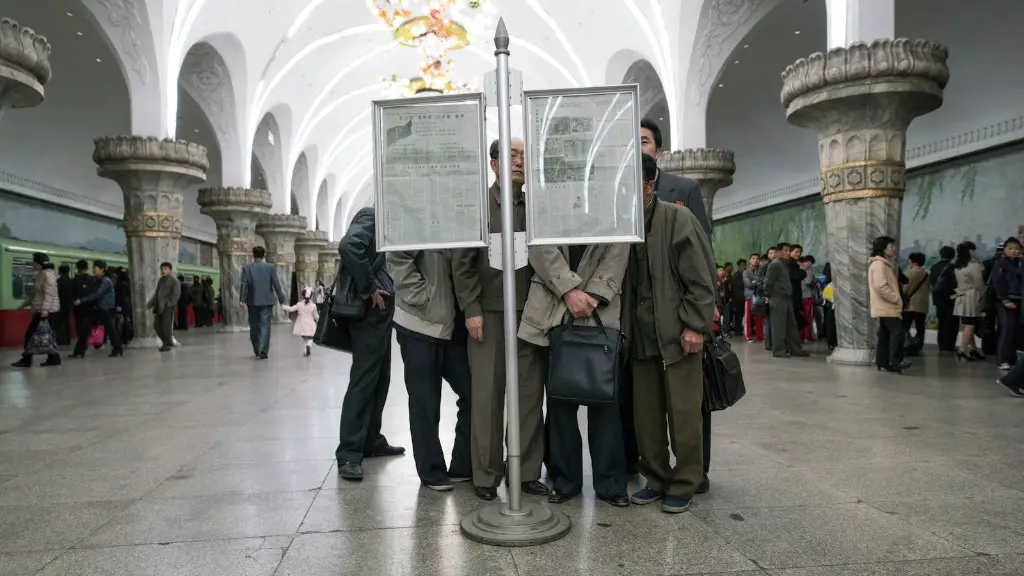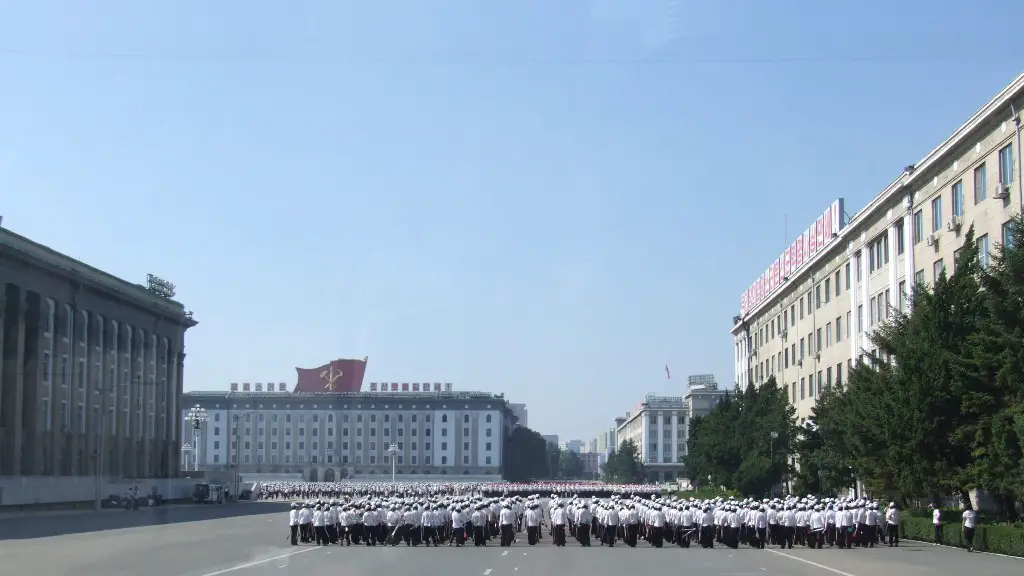The uneasy relationship between the United States and North Korea is one of the most dangerous international conflicts of our time. North Korea’s leaders view the US as a hostile power and have acted aggressively throughout their history toward US interests, making any attempt at dialogue difficult despite the importance of any potential diplomatic breakthroughs. This article seeks to provide an informed baseline from which to understand and analyse North Korea’s hostility toward the US. By looking at the historical context and research from various analysts, the various dynamics of this constantly evolving conflict become clearer.
Historical Context: The Korean War and Beyond
The Korean War (1950-53) left a deep and damaging legacy. North Korea accuses the US of committing atrocities during the conflict, including conducting biological warfare and bombing entire villages. The war also saw a breakdown in trust between the two countries and a heightened suspicion of US troops on the peninsula. This legacy of mistrust provides a backdrop to the current situation, though it clearly only offers a limited explanation for the current tensions.
Another key factor in current North Korean-US relations is the end of the Cold War. The fall of the Soviet Union in 1991 deprived North Korea of a major ally and supporter, since the collapse of Communism put pressure on all aspects of North Korean society. North Korea has felt vulnerable in its immediate neighbourhood, since the US has sought to expand its influence on the Korean peninsula ever since the collapse of the Soviet Union.
Reasons for North Korea’s Hostility
North Korea’s hostility toward the US largely stems from its pursuit of self-preservation. According to Andrei Lankov, a prominent scholar of Korean affairs, the Kim regime seeks to prevent the US and South Korea from attacking it by any means at its disposal. This has led to a policy of intransigence and brinkmanship, intended to deter any attack.
However, North Korea’s actions are more complex than mere self-preservation. While the Kim regime often appears paranoid, experts such as Alexandre Mansourov believe that North Korean leaders are well aware of what motivates the US and seek to exploit it. By presenting an abrasive and uncompromising exterior, North Korean leaders hope to drive a wedge between the US and its allies and present themselves as reasonable players in the international arena.
North Korea’s pursuit of a nuclear weapons capability is closely linked to its mistrust of the US. It views nuclear weapons not only as self-defence against potential military threats from the US, but also as a way to gain leverage in international negotiations. By acquiring nuclear weapons, North Korea gains diplomatic bargaining power to ensure that it is not taken advantage of on the world stage.
Other Factors Contributing To Tensions
The US itself has contributed to the recent tensions. Its confrontational rhetoric and economic sanctions have angered North Korea and made it more reluctant to engage in dialogue. It has also pursued various aggressive military actions, such as the deployment of an aircraft carrier group to the Korean Peninsula in the spring of 2017. These actions have caused the Kim regime to feel threatened and backed into a corner,
International pressure from the US and its allies has also provoked North Korea. The United Nations has adopted increasingly stringent economic sanctions against North Korea in response to its nuclear tests and other provocations. These sanctions have put considerable strain on North Korea’s economy, making it even more eager to take some action to improve its own situation.
US foreign policy rhetoric and perspective
The US insists that any dialogue must begin with North Korea’s commitment to peacefully resolving the conflict, and that denuclearization is an essential pillar of any lasting resolution. This view is clear in the US government’s insistence on a “maximum pressure” campaign towards North Korea. But the insistence on denuclearization has the effect of alienating North Korean leaders, making the prospects for successful dialogue even more bleak.
The US has also tried to use its allies to pressure North Korea into making concessions, but this strategy has had mixed results. US allies such as South Korea often take a softer stance toward North Korea than the US, making it more likely that North Korea will negotiate with them. But at the same time, US allies have often been forced to tread a fine line between maintaining the US-led sanctions and engaging in unofficial talks with the North Korean regime.
North Korea’s diplomatic efforts
North Korea has become increasingly involved in international diplomacy recently, in an attempt to reduce tensions with the US and its allies. It has also cooperated with South Korea and participated in various multilateral negotiations, such as the Six-Party Talks. But these efforts have often been rebuffed by the US, which insists on denuclearization before any other issues can be addressed.
North Korea has also been successful in exploiting divisions between the US and its allies. This is evident in North Korea’s relationship with China, which has grown closer even as US-China relations have deteriorated. China’s old friendship with North Korea has been reborn recently, as China sees an opportunity to increase its influence over the Korean peninsula.
Conclusion
The US and North Korea remain locked in a cycle of provocation and mistrust that shows no sign of abating. North Korea sees the US as hostile to its interests and views its nuclear weapons program as a way to deter US aggression and gain leverage in negotiations. US policies have fuelled tensions, and a hardline stance has prevented any meaningful dialogue. To break the cycle, the US must change its approach and work to reduce tensions and build trust with North Korea.



